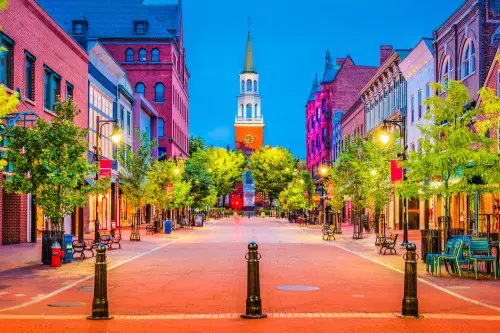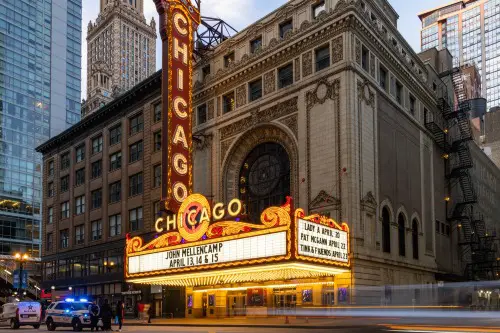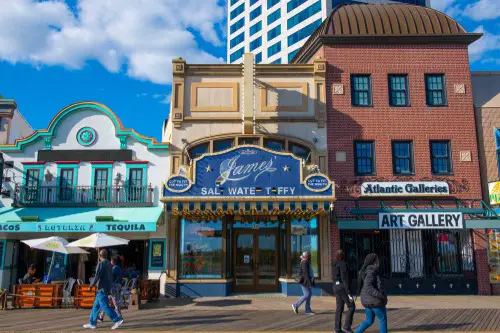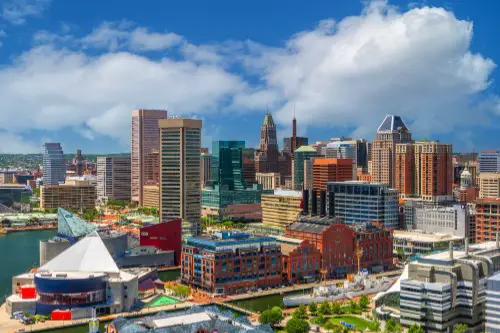1. Washington: Rainy Days for Budgets

Washington might lure retirees with its gorgeous mountains and mild climate, but the cost of living can be a downpour on retirement plans. Housing costs, especially around Seattle, are significantly higher than the national average. Even outside the metro areas, rising property taxes and high sales tax can make this state a financial challenge.
2. Vermont: Beauty That Breaks the Bank

Vermont is picture-perfect with its rolling hills and charming small towns, but living there isn’t as idyllic for those on a fixed income. Property taxes are sky-high, and heating bills during the state’s long winters can be brutal. While the quality of life is high, the cost of maintaining it might stretch retirement funds thin.
3. Illinois: Debt and Taxes Galore

Illinois offers some wonderful attractions and affordable rural towns, but the state’s fiscal troubles can make retiring here a risky choice. Property taxes are among the highest in the country, and the state’s public debt issues often translate into higher costs for residents. Retirees may also find the combination of income tax and local sales taxes to be a significant financial burden.
4. Massachusetts: Historic Charm, Hefty Costs

Massachusetts offers retirees picturesque towns, rich history, and world-class healthcare. However, these perks come with a hefty price. Housing is expensive, and the cost of assisted living facilities or in-home care can be particularly prohibitive. On top of that, the state’s high income taxes can eat into retirement savings quickly, especially if you’re drawing from pensions or investments.
5. Connecticut: Taxes Take a Bite

Connecticut is known for its quaint New England charm, but it’s also known for high taxes. The state has some of the highest property taxes in the country, along with a hefty state income tax. For retirees, these costs can add up quickly, especially if they own a home. Even day-to-day expenses like groceries and healthcare are pricier than the national average.
6. New Jersey: High Costs, High Stress

New Jersey’s proximity to New York City and its bustling suburban life make it appealing, but it’s no bargain. The Garden State has some of the highest property taxes in the nation, and the cost of healthcare and housing is nothing to scoff at either. Retirees may find that even downsizing doesn’t help much when living in such a high-cost state.
7. California: Sunshine with a Price Tag

California is often imagined as a retiree’s paradise, with its sunny beaches, mild winters, and vibrant culture. But those perks come at a steep price. Housing costs are astronomical, even in smaller cities. The average home price in California is over $700,000, and rental costs aren’t much kinder. Add in high state income taxes and skyrocketing property taxes, and it’s easy to see why many retirees head elsewhere.
8. Alaska: Nature Comes with a High Bill

For adventurous retirees, Alaska offers unmatched scenery and outdoor activities. But it also comes with a unique set of financial hurdles. Heating costs are astronomical due to the state’s frigid winters, and groceries are pricey since so much needs to be shipped in. Healthcare access can also be limited and expensive, adding another layer of stress for retirees.
9. New York: The Big Apple Eats Your Budget

New York may dazzle with its cultural offerings and iconic landmarks, but retirees can quickly find their finances stretched thin here. While New York City is notoriously expensive, even upstate regions like Albany or Buffalo come with relatively high property taxes and utility costs. Food, healthcare, and transportation also add up quickly, making it a challenging choice for a fixed income.
10. Oregon: Green Living, Steep Prices

Oregon’s stunning landscapes and progressive culture are enticing, but the financial burden is hard to ignore. Housing costs have surged in recent years, especially in cities like Portland. The state also has no sales tax, which sounds like a win—until you realize that income taxes are among the highest in the nation, which can significantly impact retirees relying on savings.
11. Hawaii: Paradise Comes at a Premium

Who wouldn’t want to spend their golden years surrounded by Hawaii’s stunning beaches and lush landscapes? Unfortunately, this dream destination comes with an equally dreamy price tag. Everything, from groceries to housing, costs more due to the state’s remote location and reliance on imports. The median home price is well over $800,000, and everyday items like milk or eggs can be double the national average.
12. Maryland: Small State, Big Costs

Maryland might be small in size, but it packs a big punch when it comes to living expenses. Proximity to Washington, D.C., drives up housing prices, and the state’s high taxes—on both income and property—can leave retirees feeling squeezed. Healthcare, groceries, and other essentials also cost more than in many other states, adding to the overall financial strain.
13. Colorado: Mountain Views, Mile-High Costs

Colorado’s breathtaking mountains and active lifestyle make it a tempting retirement destination, but it’s not easy on the wallet. Housing costs have risen dramatically in recent years, especially in cities like Denver and Boulder. While the state doesn’t tax Social Security benefits, its higher-than-average property taxes and healthcare costs might offset that advantage.


